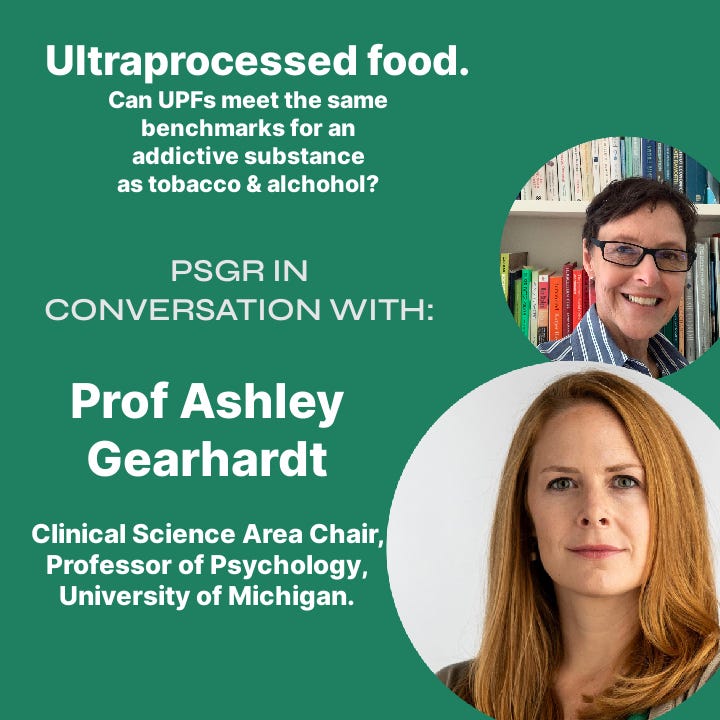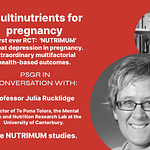'We're seeing those same behavioural indicators of addiction - the loss of control & the intense cravings. The inability to cut down, even if you know you have a life-threatening illness.'
Watch on YouTube: Can ultraprocessed foods meet the same benchmarks for an addictive substance as tobacco and alcohol?
Ashley N. Gearhardt, Ph.D. Professor of psychology, University of Michigan, (PhD Yale).
Dissertation: An Examination of the Validity of “Food Addiction”.
While working on her doctorate in clinical psychology at Yale University, Dr. Gearhardt became interested in the possibility that certain foods may be capable of triggering an addictive process. To explore this further, she developed the Yale Food Addiction Scale (YFAS) to operationalize addictive eating behaviors, which has been linked with more frequent binge eating episodes, an increased prevalence of obesity and patterns of neural activation implicated in other addictive behaviors. - https://lsa.umich.edu/psych/people/faculty/agearhar.html
The YFAS has been cited over 1,000 times (2024).
▪ One of the world’s top 2% of scientists based on citation metrics (compiled by Elsevier and faculty from Stanford University) (2023) March 2024 - Total citation count = 14353, h-index = 56, i10-index = 134
▪ Faculty Recognition Award for remarkable contributions through research, teaching, and service at the University of Michigan (2023)
▪ Selected as a Fellow of the Association for Psychological Science (2023) Gearhardt, A.N., Corbin, W.R., & Brownell, K.D.
(2009). Preliminary validation of the Yale Food Addiction Scale. Appetite, 52, 430-436.
This discussion (also on Spotify @PSGRNZ ) traverses:
scientific controversy about whether highly processed foods are truly capable of triggering an addictive response
Relationship between ultraprocessed foods (UHPs) and food addiction
Formalising a diagnostic criteria food addiction – no valid biomarker – behavioural indicators.
'Addiction epidemics often occur because a novel and potent addictive substance is created, but it's addictive potential is undetected or underestimated.'
LaFata, E.M. & Gearhardt, A.N.(2022). Ultra-processed Food Addiction: An Epidemic? Psychotherapy and Psychosomatics. 2022;91(6):363-372. doi: 10.1159/000527322.
Our hunger & our satiety signals are very intertwined with our reward & motivation systems.
For more interviews like this search @PSGRNZ Interviewed by JR Bruning of PSGR.org.nz.















Share this post